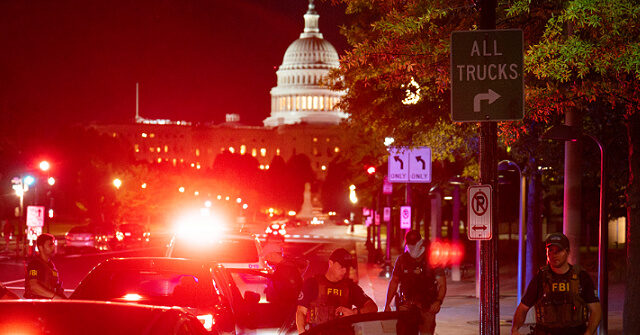Did Baltimore Just Accept a Reduced $152.3 Million Opioid Lawsuit Award?

Baltimore's Landmark Opioid Lawsuit Settlement: A Step Towards Justice
Baltimore has made headlines recently by accepting a substantial $152.3 million settlement in its ongoing battle against opioid manufacturers, specifically targeting McKesson and Cencora. This award brings the city’s total compensation from pharmaceutical companies to an impressive $579.8 million. The city’s decision was finalized on a Thursday afternoon, following a directive from Baltimore Circuit Court Judge Lawrence P. Fletcher-Hill, who had given a deadline of August 22 for the city to respond.
In June, Judge Fletcher-Hill deemed a previous jury award of $266 million as “excessive,” prompting the city to either accept the revised offer or prepare for another trial. Facing the possibility of prolonged litigation and the uncertainty that comes with it, Baltimore chose to accept the final award amount of $152.3 million. Initially, the city had aimed for a staggering $5 billion in damages, reflecting the extensive impact of the opioid crisis on its residents.
The Opioid Crisis: A Deep-Rooted Epidemic
The opioid epidemic has affected countless communities across the United States, with Baltimore being no exception. The crisis began in the late 1990s when pharmaceutical companies aggressively marketed opioid medications, often downplaying their addictive potential. As a result, prescription rates soared, leading to widespread addiction and a devastating rise in overdose deaths.
In Baltimore, the consequences have been particularly dire. The city has witnessed an alarming increase in opioid-related deaths, straining local healthcare resources and law enforcement. In response, city officials have sought accountability from the companies that contributed to this crisis, leading to the recent legal actions.
Details of the Settlement
Mayor Brandon Scott expressed his satisfaction with the recent settlement, stating, “From the beginning, this case has always been about securing justice for Baltimoreans who have been disproportionately impacted by the opioid crisis.” His statement reflects the city’s commitment to addressing the needs of its residents and holding pharmaceutical companies accountable for their role in the epidemic.
The $152.3 million award will be utilized to enhance addiction treatment programs, support recovery services, and invest in community health initiatives aimed at preventing future opioid misuse. This financial boost is expected to have a significant positive impact on the community, providing much-needed resources to combat addiction and support affected families.
The Legal Landscape Surrounding Opioid Litigation
The legal battles surrounding opioid manufacturers have intensified in recent years, with numerous cities and states filing lawsuits against these companies. The settlements often include large sums intended for public health initiatives, rehabilitation services, and educational programs about the dangers of opioid use. These legal actions serve as a crucial mechanism for holding drug manufacturers accountable and pushing for systemic changes in how opioids are prescribed and marketed.
Looking Ahead: The Future of Baltimore's Opioid Response
With the acceptance of this settlement, Baltimore is taking significant steps to rebuild and recover from the devastating effects of the opioid crisis. The funds from the settlement will not only address immediate needs but also lay the groundwork for long-term strategies to prevent substance abuse and promote mental health within the community.
Additionally, the city plans to foster collaborations with local health organizations, community groups, and law enforcement agencies to create a comprehensive approach that tackles the multifaceted nature of addiction. This coordinated effort aims to ensure that the lessons learned from the opioid crisis contribute to a healthier, safer future for all Baltimore residents.
Community Impact and Response
The response from the Baltimore community has been overwhelmingly supportive of the settlement. Many residents see this as a step toward justice and accountability. Local advocacy groups, which have tirelessly worked to raise awareness about the opioid crisis, view this settlement as a validation of their efforts and a signal that change is possible.
Moreover, there is a growing recognition that the opioid epidemic is not just a healthcare issue but a social one that requires a collective response. Community members are eager to engage in discussions about prevention, treatment, and recovery, emphasizing the need for comprehensive solutions that address the root causes of addiction.
FAQs
What led to the opioid lawsuit in Baltimore?
The opioid lawsuit in Baltimore was initiated due to the severe impact of the opioid crisis on the community, leading city officials to seek accountability from drug manufacturers like McKesson and Cencora.
How will the settlement funds be used?
The settlement funds will be allocated to enhance addiction treatment programs, recovery services, and community health initiatives aimed at preventing future opioid misuse.
What are the broader implications of this lawsuit for other cities?
The Baltimore lawsuit sets a precedent for other cities facing similar challenges, highlighting the importance of holding pharmaceutical companies accountable and pushing for systemic changes in opioid prescribing and marketing practices.
Can the opioid crisis be effectively addressed in the future?
Yes, with comprehensive strategies that involve community engagement, prevention, treatment, and recovery support, the opioid crisis can be addressed more effectively, as evidenced by Baltimore's response to the settlement.
In conclusion, Baltimore has taken a significant step forward in its battle against the opioid epidemic by accepting a $152.3 million settlement from McKesson and Cencora. This pivotal moment is not just about financial compensation; it represents a commitment to healing and rebuilding a community deeply affected by addiction. As cities across the nation continue to navigate the complexities of the opioid crisis, Baltimore's actions may inspire other municipalities to pursue justice and accountability in their own right. How can communities effectively collaborate to prevent future public health crises? #OpioidCrisis #PublicHealth #CommunityRecovery
Published: 2025-08-15 02:26:33 | Category: Trump GNEWS Search



